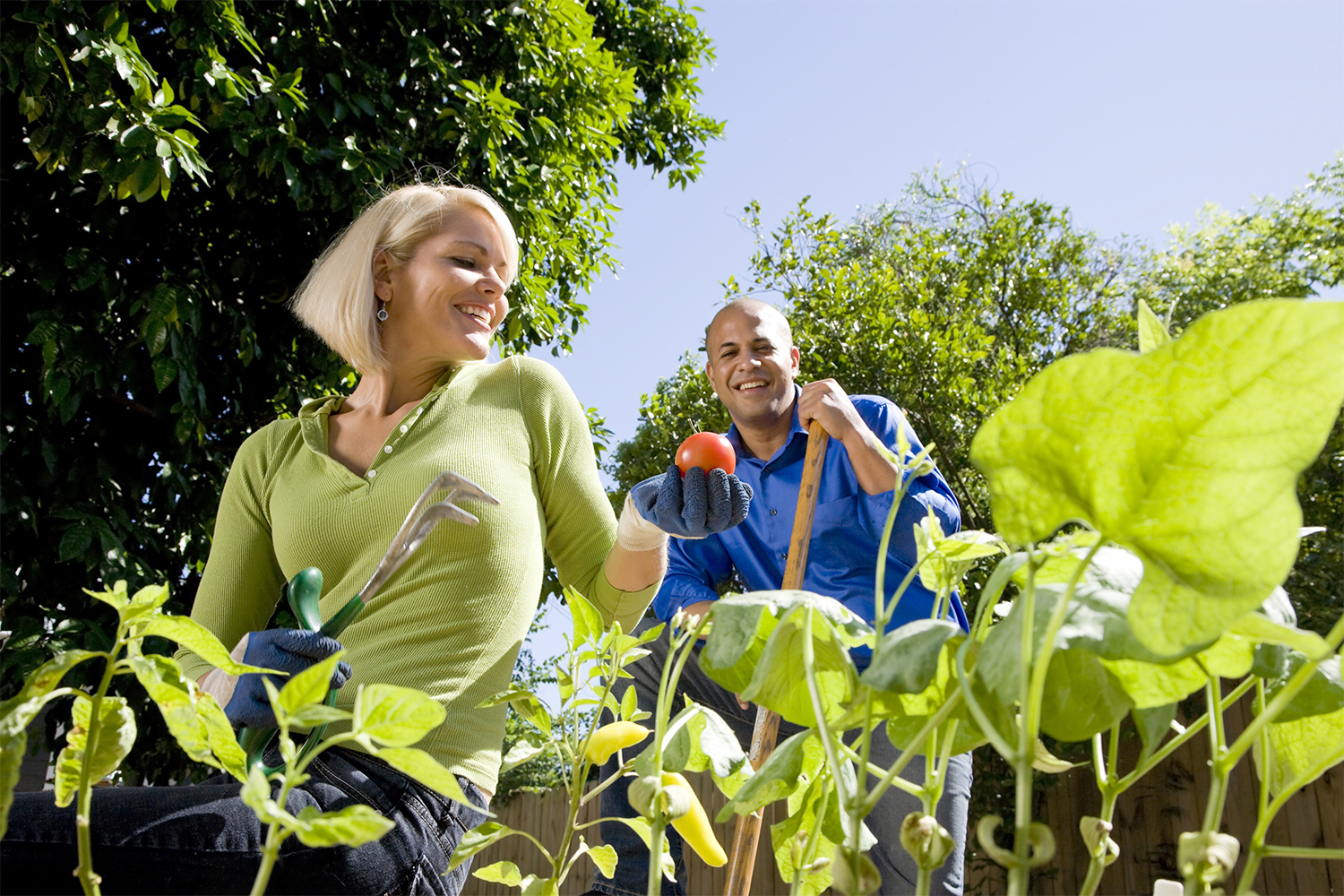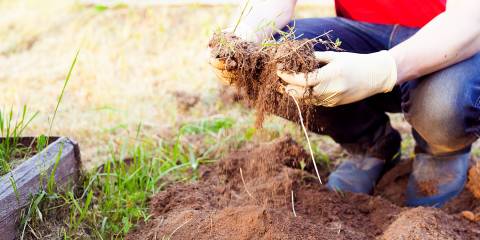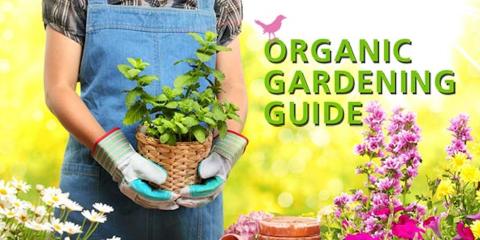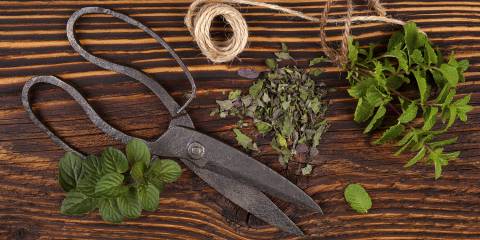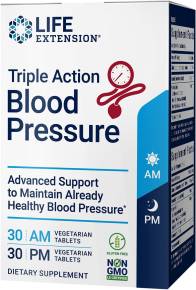Whether you’re an experienced organic gardener or just starting out, questions always arise. To help out, we consulted two organic gardening experts for answers to common gardening questions.
Our Experts:
- Craig Jenkins-Sutton, president and co-founder of Topiarius Urban Garden Design
- Chris Bond, farm horticulturist/ farm food program coordinator, Case Western Reserve University
Common Gardening Questions
How can one have soil tested for contaminants and nutrients?
Jenkins-Sutton: Most county extension offices will run soil samples, and quite a few garden centers do as well. Every place has different procedures, so make sure to find out exactly how they want you to take samples and what they will be testing for.
For DIYers, there are soil test kits for purchase at home stores and nurseries. These kits usually test for nitrogen, pH, potash, and phosphate. Complete instructions are provided for adjusting soil pH, along with fertilization guidelines and a pH preference list for over 450 plants for the home, yard and garden.
What vegetables grow well in mostly shade?
Jenkins-Sutton: Unfortunately, not many vegetables will tolerate even light shade. Some of the leafy greens will do OK in lower light; but if you are wanting tomatoes or peppers, you will need six to eight hours’ sunlight per day.
What are some of the easiest vegetables to grow?
Jenkins-Sutton: Most herbs are easy to grow; just give them sun and water. Peppers are very maintenance-free as well; they just do not like cold at all. For easy tomatoes, I like to recommend cherry types, as they are usually large producers and they ripen fast—my favorite is Sun Gold. If you have the space, sweet potatoes are very easy as well. They just need some space for their vines to spread.
Should you place mulch on top of soil once you’ve planted and the vegetables have sprouted?
Chris Bond: Once the plants have developed their first set of true leaves, mulch can be placed on the soil around the plants, so long as the mulch does not cover or bury any part of the vegetable. Shredded paper, cardboard, straw and grass clippings are all effective, cheap or even free sources of mulch. No more than 2–3 inches in depth should be applied. Wet them down, though, upon application so that they do not blow around.
Avoid using wood chips from recently fallen trees, as the process of decomposition can remove nutrients from the soil or compete for the same nutrients as the plants that you want to nurture.
For larger plants, a weed barrier should be placed before seeding, with holes cut out where seeds will be sown. As the vegetables mature, they will not have to compete as much with the weeds for water, sunlight and nutrients.
Aside from tomatoes, what else grows well in pots indoors or on balconies?
Jenkins-Sutton: I have a small urban garden, so most of my vegetables are grown in containers. Peppers, eggplant, leafy greens, carrots, beets, zucchini, all do great in containers. I also grow potatoes, sweet potatoes and winter squash in large containers.
Do you have any favorite natural weedkiller tricks?
Jenkins-Sutton: Hand-pull, hand-pull, hand-pull. Then, when I am walking through the vegetable garden, I keep my eyes open for weeds that I can hand-pull.
Just be careful around small vegetable seed starts so that you do not pull them up with the weeds. To help keep them from growing in the first place, I like to use fabric over the top of the soil. This works great for tomatoes and peppers.
Weedkillers (even natural and organic ones) can kill or damage vegetables. Unfortunately there are no great solutions to weeds.
Are there certain plants that are easier to grow from seed than others?
Chris Bond: In general, I believe “summer” crops to be easier to grow direct from seed as well as root vegetables and crops that mature quickly, like bush-type beans.
Summer crops would include the cucurbits (zucchini and squashes, cucumbers) and corn. Root crops like carrots, radishes and turnips do well from seed; they do not transplant well. Peas and beans also establish well from seed.
Crops that do better as transplants typically include the Solanaceae, of which tomatoes, peppers, eggplants and potatoes are a part.
Are heirloom vegetables more difficult to grow than regular?
Jenkins-Sutton: There are a few heirloom crops that may be more susceptible to some fungi and require a little more attention. Most seed suppliers are very helpful in describing potential issues for a specific variety—often listing them right in the product description.
I recommend doing a little research, whether with a more experienced gardener or an online search if you have a question about a specific variety. I plant almost all heirloom vegetables and don’t feel I have any more difficulty with common pests.
I can’t get my compost to decompose. Any suggestions?
Jenkins-Sutton: It all depends on the type of compost pile you have. Smaller piles don’t heat up as much as larger piles, so they take a much longer time to decompose.
Brown materials (dead leaves, bark and twigs) can be chopped into smaller pieces to assist. Also, make sure that you are adding proper proportions of green materials (green leaves, grass clippings) to the pile and that the pile is turned properly.
There are also composting bins—both DIY and manufactured—that can help make the composting process easier.
How can I prevent birds from eating my raspberries and blackberries?
Chris Bond: Bird netting is the most effective deterrent from bird and animal browsing. Drive stakes at least as tall as your plants on each side. Drape netting over the top and fasten it with nails or staples to the stake if using wood stakes; use twine or zip ties if using metal stakes. Leave one side loosely fastened so that you can get in and out easily to harvest.
Another less economical but more environmentally friendly approach is to overplant. Plant 2–3 times as many raspberry or blackberry bushes as you might reasonably harvest, knowing that you will lose a high percentage to animal and bird browsing.
